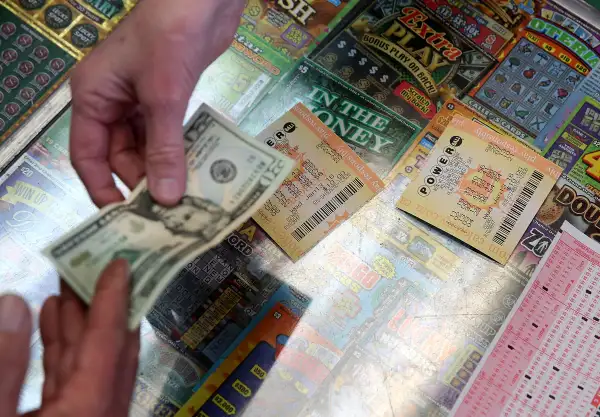Why Buying Every Powerball Combination Would Have Been a Losing Strategy

The biggest Powerball of all time finally came to an end, and it'll probably be a couple years before the record gets inevitably broken again. As a country, we've gone through a wild week together, and like a Greek tragedy, it's important to come out of the suffering with some wisdom—namely, there's nothing you could have done differently.
Gaming the lottery is next to impossible, but one way that's often postulated as a tactic is to buy up every single number combination, thereby guaranteeing yourself of a victory. Unfortunately, in the current situation, using this strategy would not have been a victory. It would have been a tremendous loss.
There are 292,201,338 million possible number combinations, so you'd have to spend $584,402,676 to buy all of them (most likely, in cash). For last night's jackpot, the lump sum (which you probably would have taken) takeaway was $561,720,000 post-tax. Three players won, and if you bought every combination and thereby automatically became a fourth winner, each person would have won $140,430,000 (grand prize split) plus $56,453,493 (all fixed prizes post-tax).
But you have to subtract your outlay. The result would have been a $387,519,183 loss, though you could deduct $196,883,493 off your taxable income for a little cold comfort.
Read Next: Why the 3 Big Powerball Winners Are Even Luckier Than You Thought
Had you been the only winner, yes, you would have come out with $33,770,817 had you somehow snagged every ticket combination out there and you lived in a state that didn't tax lottery winnings. And while that can be a likely scenario in smaller lotteries (some of which could have net a positive expected value and actually be in your favor), it would have been very unlikely.
As I wrote in an earlier piece about the expected value of a Powerball ticket, the odds of being the only winner go down drastically when more people play. According to Bill Butler, a computer scientist who has a very cool lotto page on his website, there was only a 12.8% chance there would be no other winning tickets sold (other than your own, which you know has been sold because you bought it in this thought experiment) with 635,103,137 tickets sold. That doesn't bode well for you being the solo winner.
Of course, this is to say nothing of the logistical nightmare of actually buying all these tickets. As The Atlantic notes, you'd have to fill them out individually to ensure you hit all the combos, and at one per second—an impossibly fast pace—that would take you 222 years. If you had a big staff to do it, your entourage would have to roll ridiculously deep, like that of a decent-sized city.
The other annoyance you'd face would be actually buying these tickets. Unless you live in one of just 14 states, you can't buy Powerball tickets with a credit card, so you'd have probably have to have hundreds of millions in cold hard cash. Considering the cash sum required, if taken in $20s (lottery vendors might not take $50s or $100s) you'd need 4% of total US dollar circulation of $20 bills. Good luck finding that at your local ATM or Bank of America branch. Or the bank's HQ. That's an appalling amount of cash. There is a reason no one does this. Many reasons, actually.